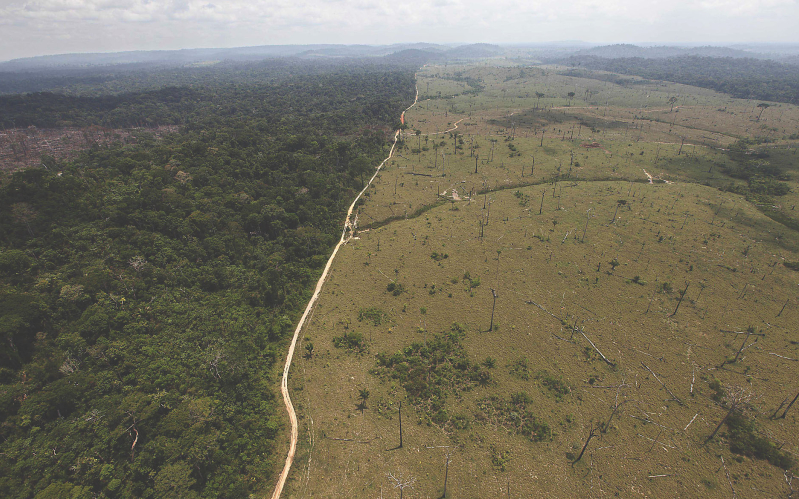
A study, involving a large group of scientists, found that more than half of the Amazonian tree species could become extinct, thanks to massive deforestation. More than 5,000 trees species are in deep trouble, including the ones that are producing cacao and açaí palm.
An international team of 158 scientists discovered that if governments would not intervene in the degradation of Amazon forests, between 36 to 57 percent of the 16,000 tree species in the tropical rainforest area will wipe out on Earth.
The rate of extinction depends on whether deforestation in the region's forest continues at its current rate or slows down to lesser rate, authors of the study noted. If the current tree-cutting activities continue, approximately 8,700 tree types are in trouble, but it could be lowered to 5,500 if governments can implement regulations, according to Nigel Pitman, co-author of the study from the Field Museum in Chicago.
"This is a major problem in conservation. It's very easy for governments to draw a line on the map and declare an area protected," said Kenneth Feeley, ecologist at Florida International University. "It's much harder to make that area effectively protected."
Furthermore, the Amazon's trees are now listed as threatened in the International Union for Conservation of Nature's Red List, the globally recognized institution that issues warnings on threatened species.
In order arrive at these conclusions, the researchers trekked into the Amazon to measure tree diameters and collect tree samples such as fruits, branches, and leaves. After that, they document information from 1,485 plots of forest, each about two acres.
After they had collected the entire specimen, the team created computer models to predict what would happen if the current deforestation continues. They came up with two scenarios. First, they calculated that more than 50 percent of the original Amazon forests would disappear. In the second scenario, in which governments implemented strong regulations to protect forests, it showed only 21 percent of the trees would be ruined by 2050.
If conservation efforts succeed, a substantial part of the diversity of the Amazon could survive, according to Hans ter Steege, lead author of the study and ecologist from Naturalis Biodiversity Center in the Netherlands.
About 15 years ago, the Amazon was losing more than 11.6 million square miles of forest a year, said Tim Killeen of the Agteca Amazonica in Bolivia.
The latest findings were published in Friday's edition of journal Science Advances.







